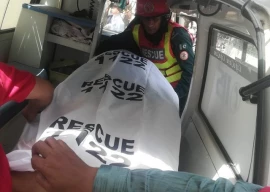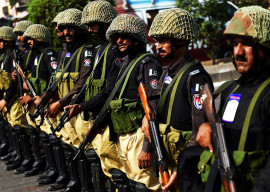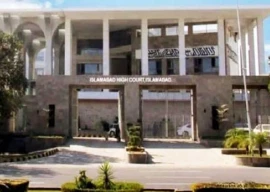
For coronavirus delays: Trade deal ambiguity gives China ample room
US-China trade agreement doesn’t formally take effect until February 15
WASHINGTON: The United States’ expected “export boom” to China in the aftermath of the phase one trade deal will be delayed, as China battles the rapidly spreading coronavirus, said White House economic adviser Larry Kudlow.
Chinese factories, cities and transport links are shut as Beijing fights the spread of the virus, dampening domestic demand for everything from oil to consumer goods. Under the trade deal, Beijing agreed to boost its US purchases by $200 billion over two years, a massive increase that many analysts said was overly ambitious before the virus emerged.
Purchase targets
In the text of the agreement, Beijing has pledged to buy $76.7 billion of additional US goods and services, on top of a 2017 baseline, in the 12 months that started January 1, 2020, although the agreement doesn’t formally take effect until February 15, 2020.
It specifies an additional $123 billion in Chinese purchases for the second year, 2021. Included in the first-year target are increases of $32.9 billion in US manufactured goods purchases, $12 billion for agricultural products, $18.5 billion for energy and $12.8 billion for services. The deal deliberately does not spell out when during the year these goods should be purchased, in part because Beijing insisted that market demand dictate purchase timing.
Coronavirus outbreak: International buyers turn to Pakistan for textile orders
It says, “The parties acknowledge that purchases will be made at market prices based on commercial consideration and that market conditions, particularly in the case of agricultural goods, may dictate the timing of purchases within any given year. The deal text contains a disaster clause, yet to be formally invoked by Beijing, to allow for delays.
“In the event that a natural disaster or other unforeseeable events outside the control of the parties delay a party from timely complying with its obligations under this agreement, the parties shall consult with each other.”
Consultations
The form these consultations should take is not specified in the text. Enforcement of the agreement relies heavily on a bilateral process, with each side set up an enforcement officer to monitor compliance with the deal and to field complaints from companies or other parties.
Any disputes in implementing the terms of the agreement, including meeting China’s purchase targets, will progress up a chain of officials over a 90-day period, from the working level to vice ministers and ultimately to United States Trade Representative (USTR) Robert Lighthizer and Chinese Vice Premier Liu He.
If a dispute cannot be resolved, the complaining party can levy tariffs in proportion to the damage caused by the complaint. China, however, would be prohibited from responding in kind to any punitive US tariffs. Beijing’s only recourse in that cause is to quit the agreement.
Lighthizer has said the structure, which includes twice-yearly consultations with Liu, is aimed at resolving any disagreements bilaterally. He has eschewed third-party dispute resolution mechanisms in trade agreements.
The USTR “has not received any requests from China’s government to discuss changes in China’s purchase commitments due to the coronavirus outbreak,” a spokeswoman said. The Trump administration considers trade and the coronavirus separate issues, White House senior adviser Kellyanne Conway said Wednesday.
Oil prices leap over 4% after reports on coronavirus drug
In the public health meetings she has been in, she said she’s never “heard the word trade mentioned a single time.
“With wide swaths of China’s economy on lockdown, implementation of the trade deal “will take a back seat,” said Wendy Cutler, a former deputy US trade representative. “The best thing the US can do at this point is to be compassionate and recognise this and accept it, and not make abrasive comments on what we expect,” Cutler told a trade conference in Washington.
Cutler said that it is unlikely that virus-prompted delays would let China “off the hook” for its purchase agreements, and Washington and Beijing would find a way forward. “There is a heavy incentive on both sides for this agreement to work,” she said.
Published in The Express Tribune, February 6th, 2020.
Like Business on Facebook, follow @TribuneBiz on Twitter to stay informed and join in the conversation.





















COMMENTS
Comments are moderated and generally will be posted if they are on-topic and not abusive.
For more information, please see our Comments FAQ